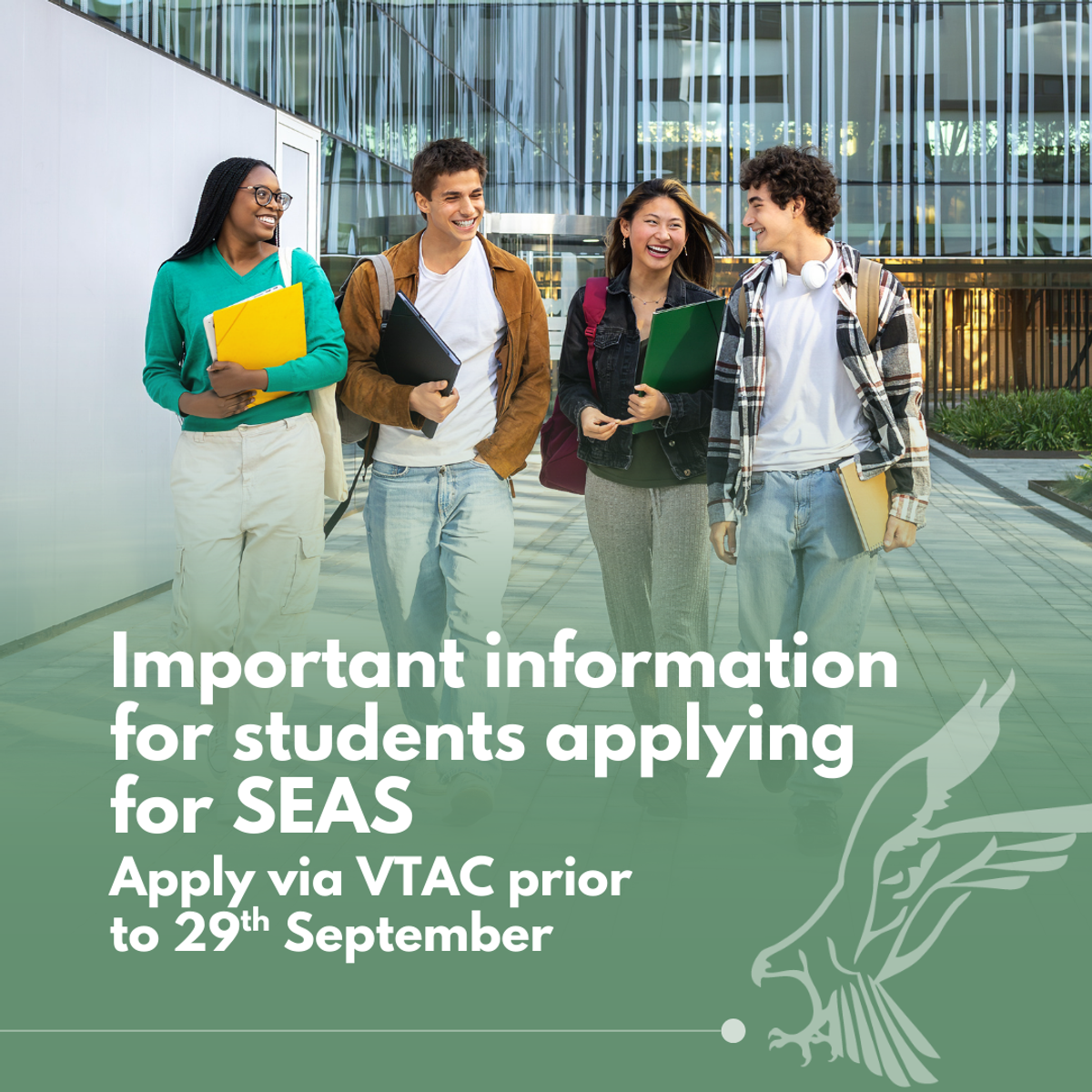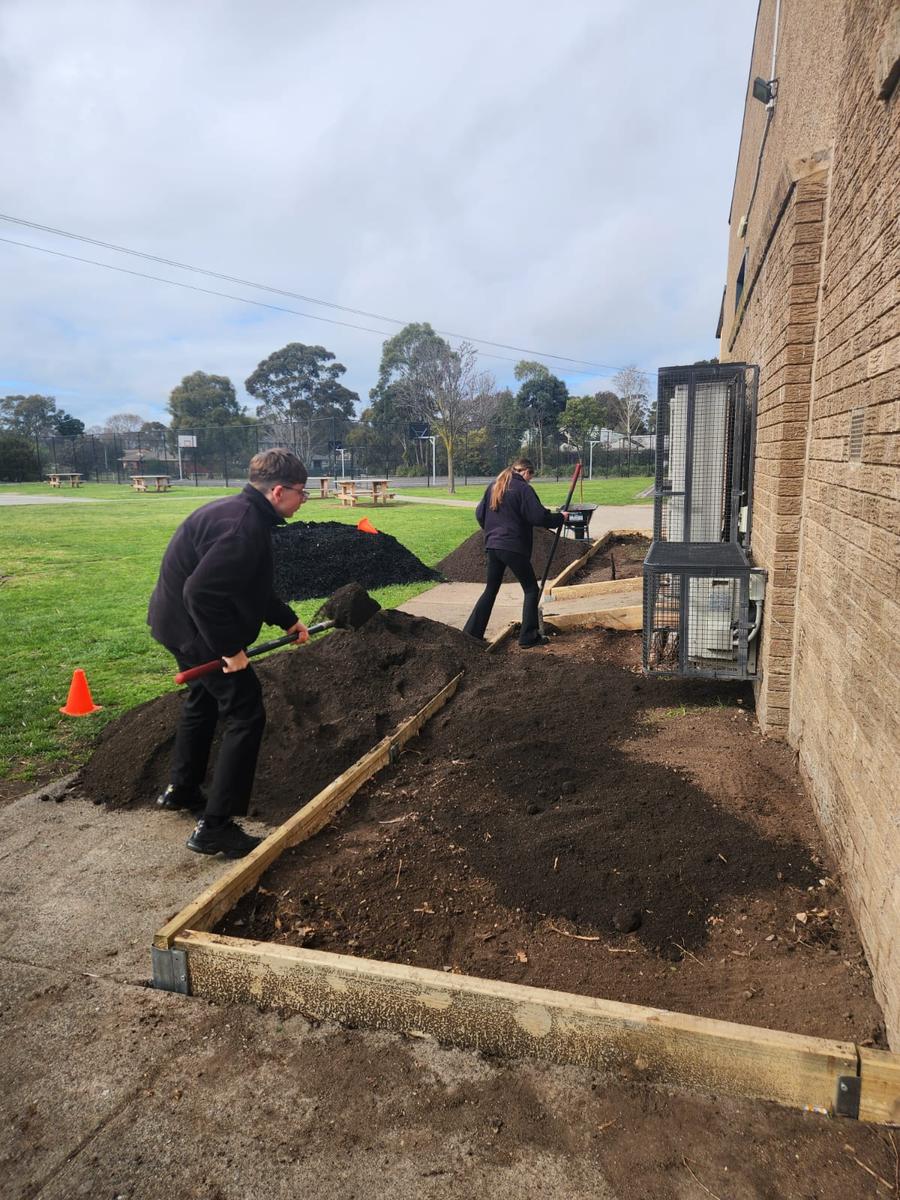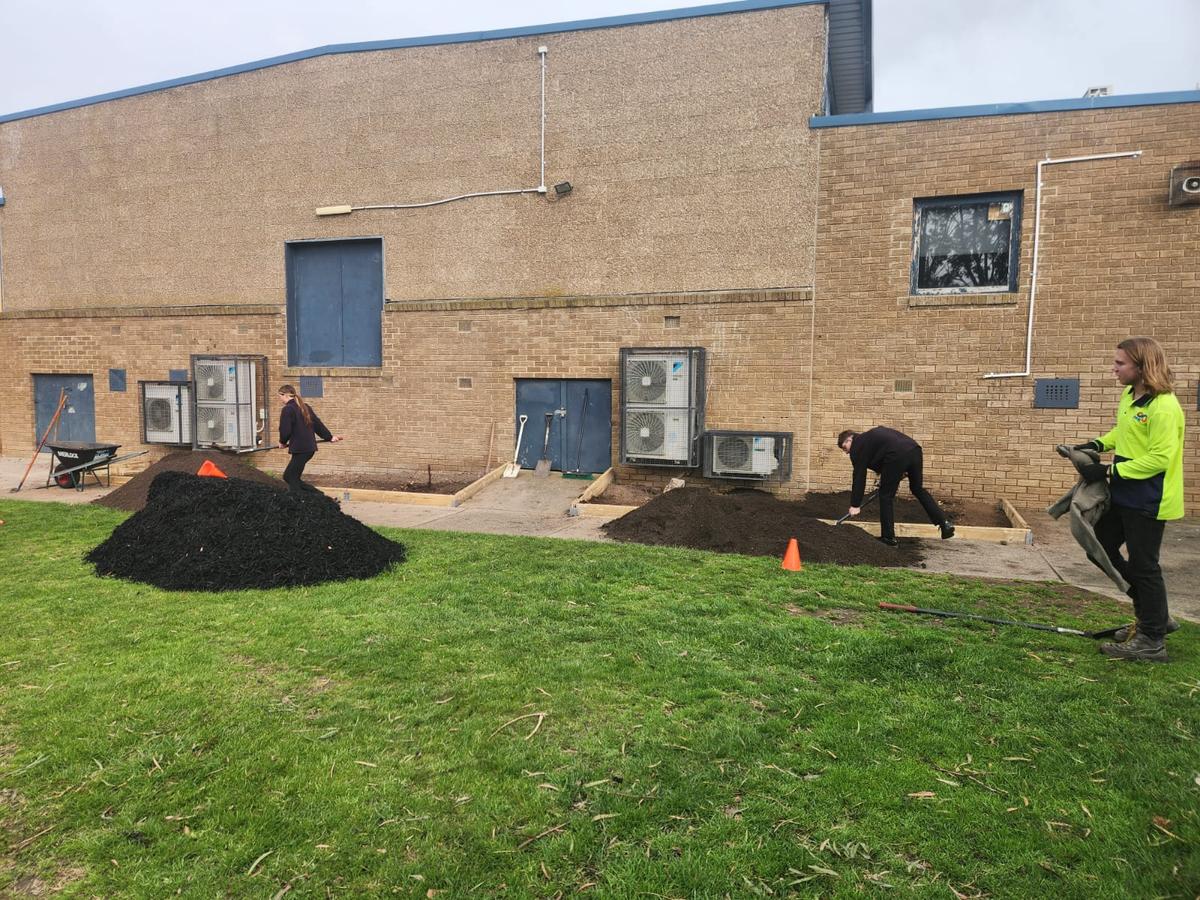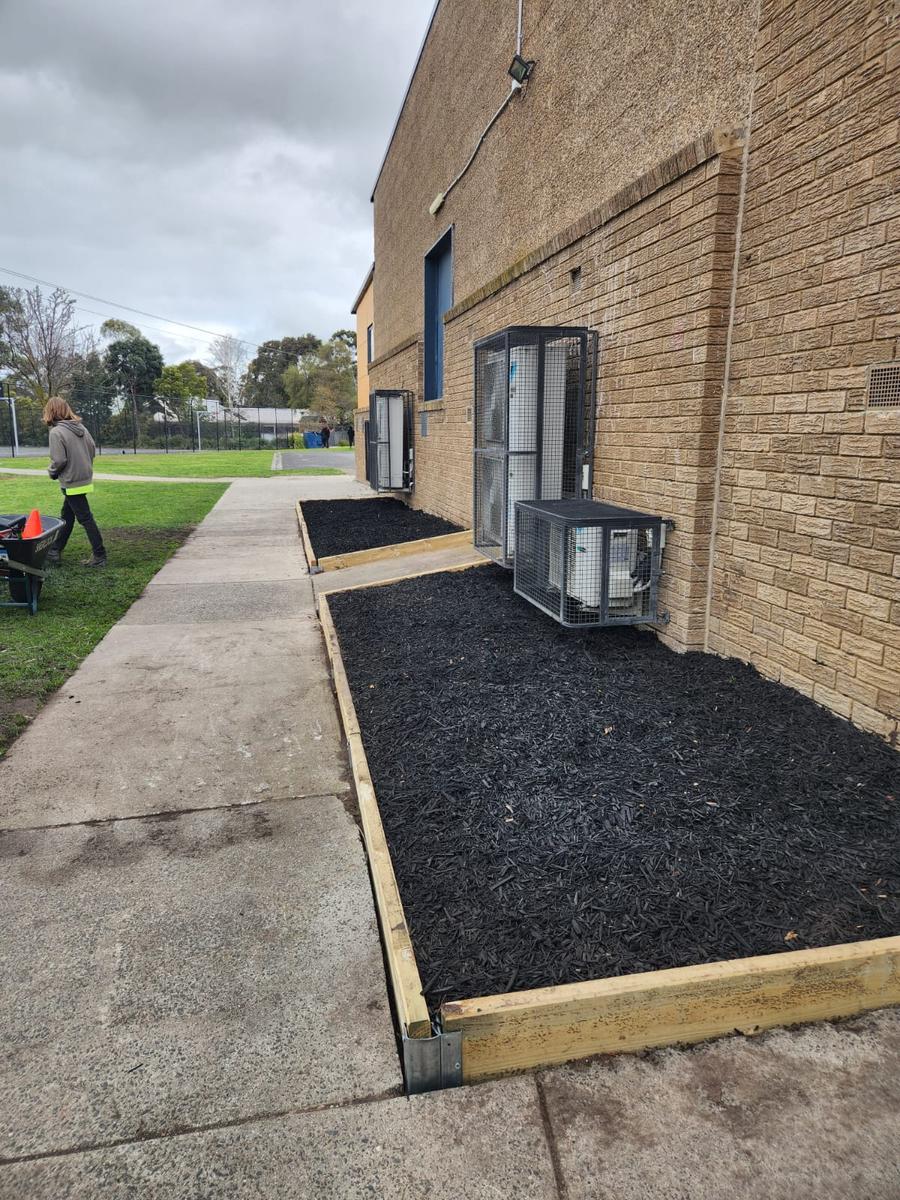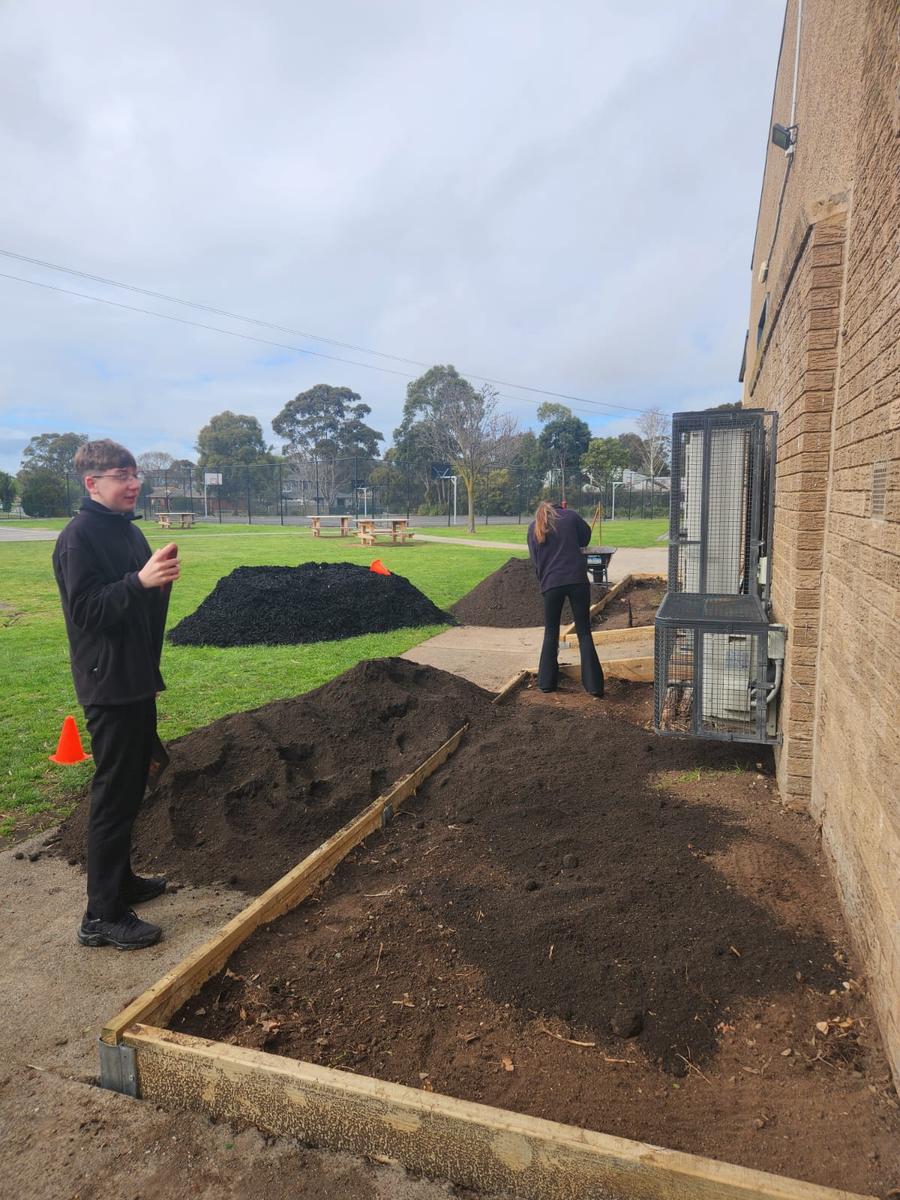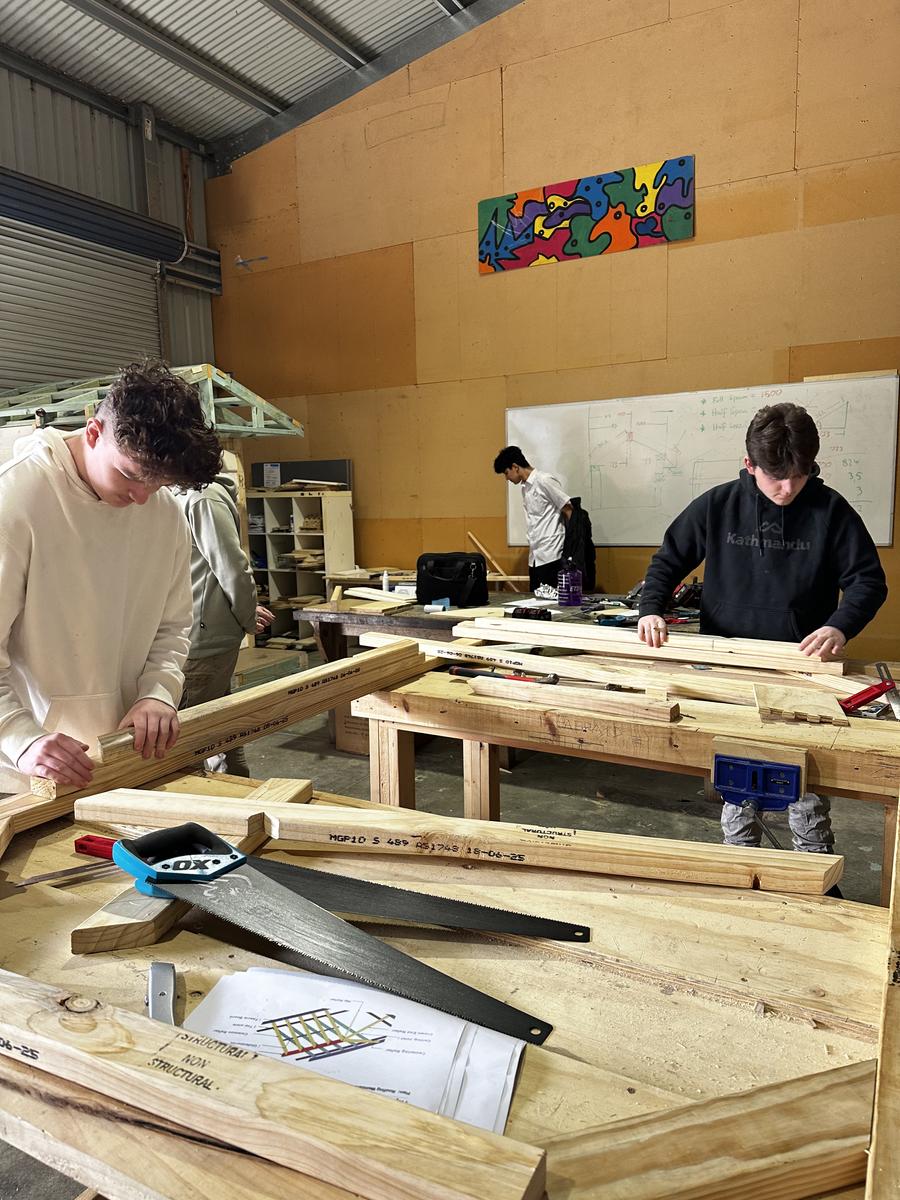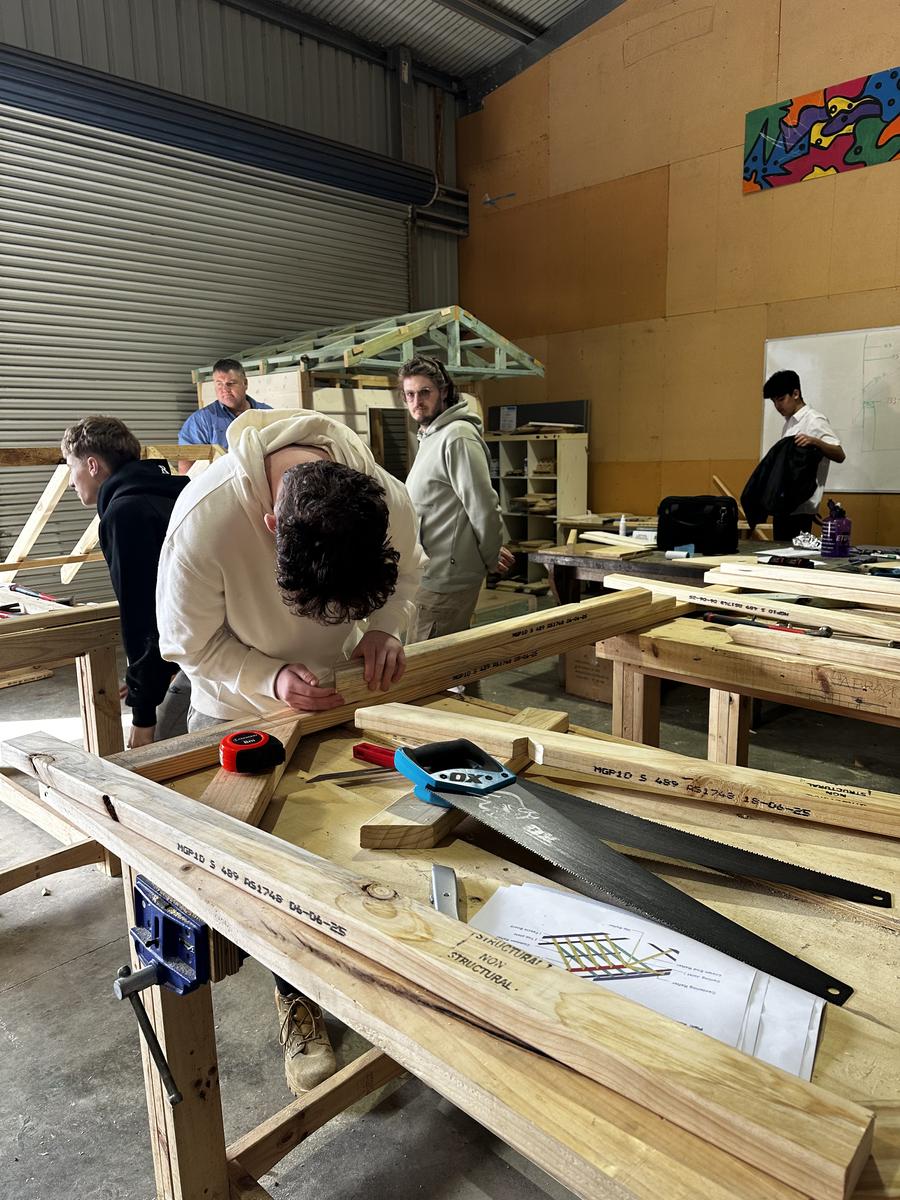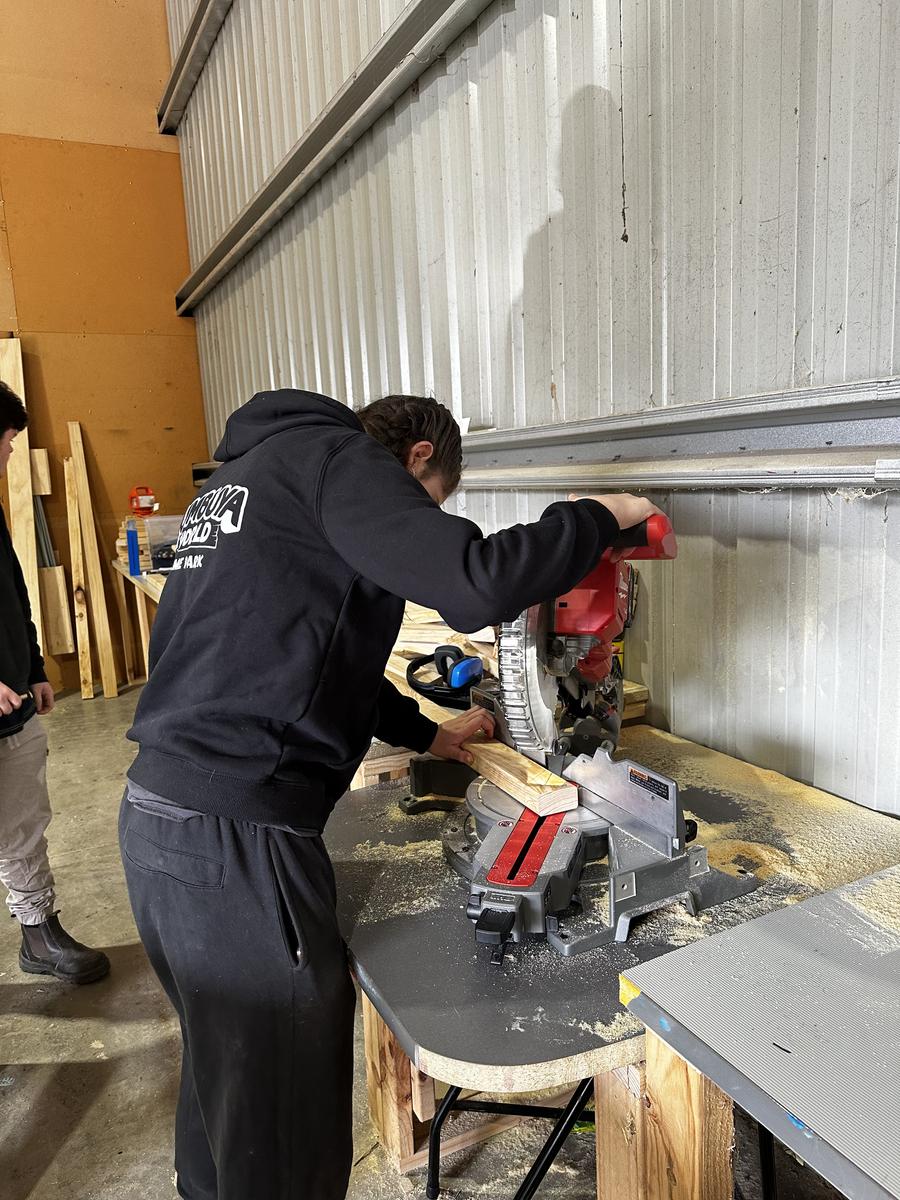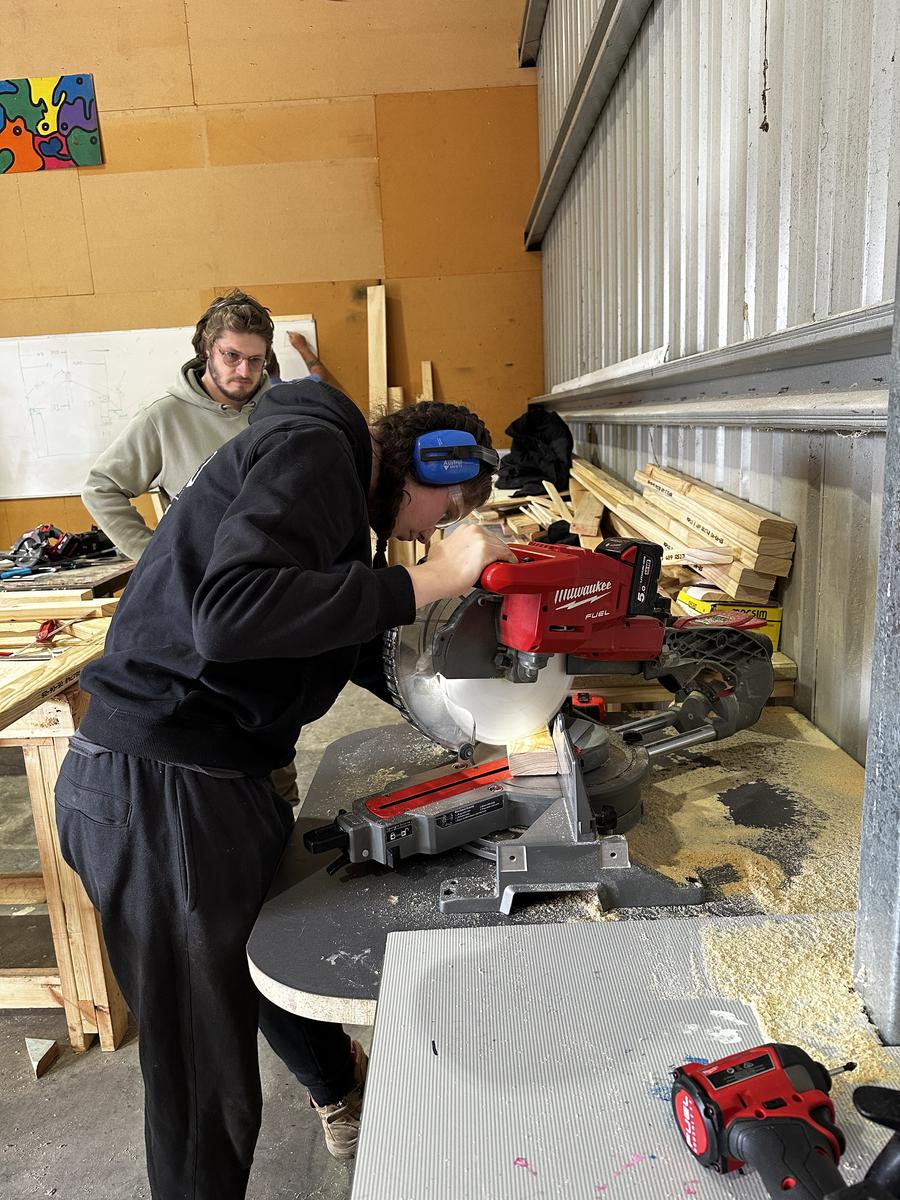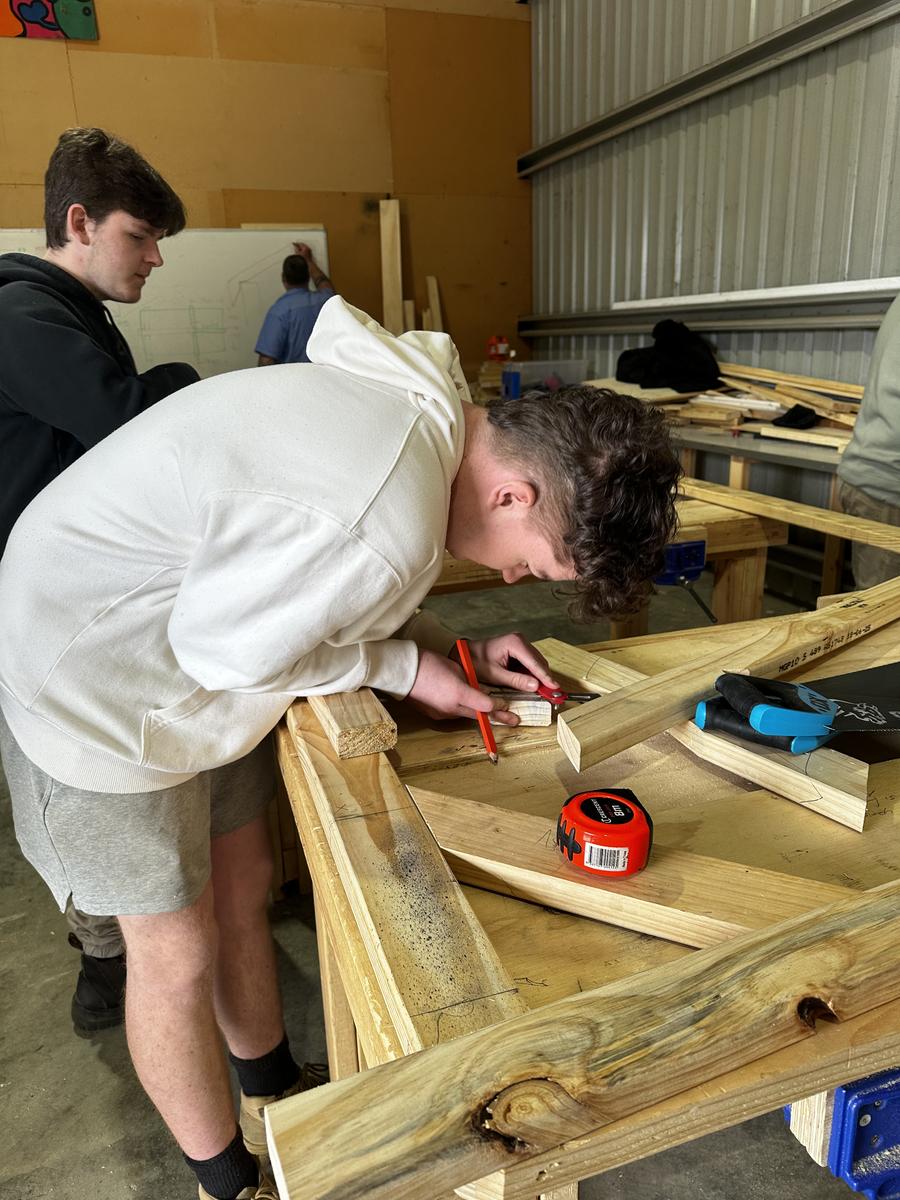Careers Corner

Students applying for the Special Entry Access Scheme (SEAS)
Steps to Apply for SEAS
Submit your Course Application:
You must first complete your course application in your VTAC account.
Pay the Course Application Fee:
You will be prompted to pay the one-off course application fee online via credit card, Visa debit card, or PayPal.
Access SEAS:
Once your course application is submitted, (VTAC will not allow you to access the SEAS application until you have paid) the SEAS application option will appear in your VTAC account.
Don't forget to meet with Ms McKay regarding your application.
PLEASE NOTE THAT THE COST FOR APPLYING IS CURRENTLY $80. THIS IS DUE TO INCREASE - PLEASE PAY BY 29TH SEPTEMBER.
SEAS applications close on the 10th October.
Update on Vocational Education and Training at PSC
Pakenham Secondary College is proud to be part of a local VET Mini Cluster alongside Officer Secondary College, Edenbrook Secondary College and Koo Wee Rup Secondary College. By working together, our schools are able to provide students in Years 9–11 with a greater variety of Vocational Education and Training (VET) options than any one school could offer alone.
This collaboration gives students the chance to gain industry-recognised qualifications while still completing their VCE or VCE Vocational Major. The hands-on, practical learning helps them build real-world skills and opens up more pathways to future careers, all within our local community.
At Pakenham Secondary College, we currently deliver a number of VET programs, including Building and Construction and Horticulture. Our Building and Construction students have been busy developing a new shed, while our Horticulture students have transformed the front of the College with their beautiful garden.
Chisholm Info Day
Chisholm’s Info Days at Berwick and Cranbourne are coming up! Their Info Day is your chance to experience Chisholm up close.
Chat with their teachers, tour their campuses and find out how they can support your study journey.
Berwick and Cranbourne campuses
1st October 2025
3.30pm-6.30pm
School Holiday Events at Swinburne University
Are you ready to experience university life? Why not attend a 'Day in the Life of a Swinburne Student' event? You will have the chance to get hands-on in a session of your choice.
STEM - Tuesday 30th September
CREATIVE & SOCIAL IMPACT - Wednesday 1st October
HEALTH, SPORT AND EDUCATION - Tuesday 2nd October
Soft Skills: The Secret Superpower Employers Want
Grades matter, but it’s your soft skills - like teamwork, communication and adaptability, that can really set you apart. You’re building these skills all the time, often without noticing it: group assignments and sport strengthen teamwork, class debates or even making TikToks boost communication, and dealing with last-minute changes at school develops your adaptability. Employers see these qualities as just as valuable as technical know-how because they show you’re dependable, creative and great to collaborate with.
How to Build Soft Skills at School (Without Even Realising It):
Volunteer to be the group spokesperson in class = boosts confidence and communication.
Join a sports team or music group = sharpens teamwork and collaboration.
Take on a casual job or school leadership role = develops reliability and responsibility.
Try something new (like coding, debating or drama) = builds adaptability and resilience.
Spotlight on Careers - Cybersecurity Analyst
You don’t need to be a computer genius to be a Cybersecurity Analyst.
What matters most is curiosity, problem-solving skills and a genuine desire to protect people and organisations from digital threats.
What is a Cybersecurity Analyst?
A Cybersecurity Analyst protects computer systems, networks and data from cyber threats like hackers, viruses and scams. They monitor systems for suspicious activity, investigate security breaches and put safeguards in place to stop future attacks. Cybersecurity Analysts might work for government agencies, banks, tech companies or even gaming platforms anywhere digital security is essential. The goal of a Cybersecurity Analyst is to keep information safe and ensure people and organisations can use technology with confidence.
What skills and strengths are needed?
Strong problem-solving skills are key, as analysts often need to figure out how a hacker got in and how to stop it happening again. Attention to detail and persistence help when scanning through data or logs for clues. Communication skills are also important because analysts must explain technical issues clearly to non-technical people. Curiosity and a willingness to keep learning are vital, since cyber threats are always evolving. Teamwork, adaptability and logical thinking are also big advantages in this fast-moving field.
What are the pathways?
You can begin with entry-level courses in IT or cybersecurity, such as a Certificate IV in Cyber Security. From there, many analysts go on to study diplomas or degrees in computer science, information technology or cybersecurity. Getting hands-on experience through coding clubs, cybersecurity competitions, or volunteering to help with IT support at school can be great ways to start building skills. Internships, part-time IT roles and industry certifications (like CompTIA Security+ or CISSP later on) can open doors into this high-demand and exciting career.
Studying away from home: What to know
If you’re thinking about studying away from home, what do you need to know?
Why live on campus?
For those students who are looking for a unique experience that allows them to immerse themselves in their studies, enjoy a lifestyle with incredible access to local amenities, make new friends, or simply experience a new place, then on-campus living can be a great option.
How does on-campus living compare to living in other accommodation types?
At universities such as the University of New England (UNE), there are a range of on-campus accommodations on offer, all with their own unique qualities, cultures and inclusions.
For example, UNE’s Wright College offers self-contained apartments with in-room kitchenettes and ensuite bathrooms, enabling a self-sufficient lifestyle while benefiting from common areas for study and socialising. In contrast, Wright Village features four-, six, or eight-bedroom flats with large full kitchens, with plenty of opportunities to socialise and meet new people.
On-campus living may also be a competitively affordable option compared to similarly-positioned off-campus options, In fact, UNE offers a free trimester of college accommodation to students who have applied through their Early Entry program.
What kinds of support are available for people interested in going to college?
UNE has a variety of support structures and organisations to help students and residents with their studies, making the transition into college living, and overall wellbeing.
This includes academic skills support, independent counselling and psychological services. Additionally, there are several scholarships on offer across academic, athletic and other criteria that can be put towards education-related expenses.
UNE is also currently offering free accommodation in the first trimester for college students who secure their place in the class using their Early Entry scheme.
How do I apply for accommodation?
You can register your interest in student accommodation at UNE before you formally receive your offer.
You’ll need to register your details, create an account, and submit your application, including your specific college preference. The residential team will process your application and you’ll receive a college offer email.
College rooms can be filled quickly, so it’s often smart to accept your offer as soon as possible.
2025 University Open Days
What Are Open Days?
Open Days are your chance to see what uni life is really like - walk around the campus, meet current students and staff, and find out if it feels like the right fit for you.
Plan Ahead: Know What You Want to Find Out
Before you go, have a quick look at the University Open Day schedule and select the talks, tours, or sessions you’re keen on. Think about what matters most to you, such as courses, accommodation, clubs, support services, or career advice. Write down a few questions so you don’t forget them on the day.
Explore the Campus and Facilities
Once you’re there, take time to wander around. Check out lecture halls, libraries, and student hangout spots to see where you’d spend most of your time. If you’re planning to move away from home, make sure you explore the accommodation options too.
Talk to Students and Staff
Ask current students what they like (and don’t like) about the uni and their course. Chat with academic staff about course content, assessment, and career pathways. You’ll get honest answers and helpful tips that sometimes brochures can’t always give.
Follow Up and Reflect
After the open day, review your notes and compare universities (if you visit more than one). Discuss what you learned with family, teachers, or careers advisors. Use the info to narrow down your choices and prepare better applications.
Click the button below for a list of upcoming Open Days and start planning your visit!
PSC Careers Website
We have a fantastic resource available for students. The PSC Careers Website provides you with all of the latest information that will help you make decisions about your future career and your life beyond school.
You can visit this site to find out about university or TAFE courses and any other type of course available across Australia. The site also has information about VCE, you can search for job vacancies and much more.
In addition to this, please do feel free to drop into the Careers Office if you have any questions.

